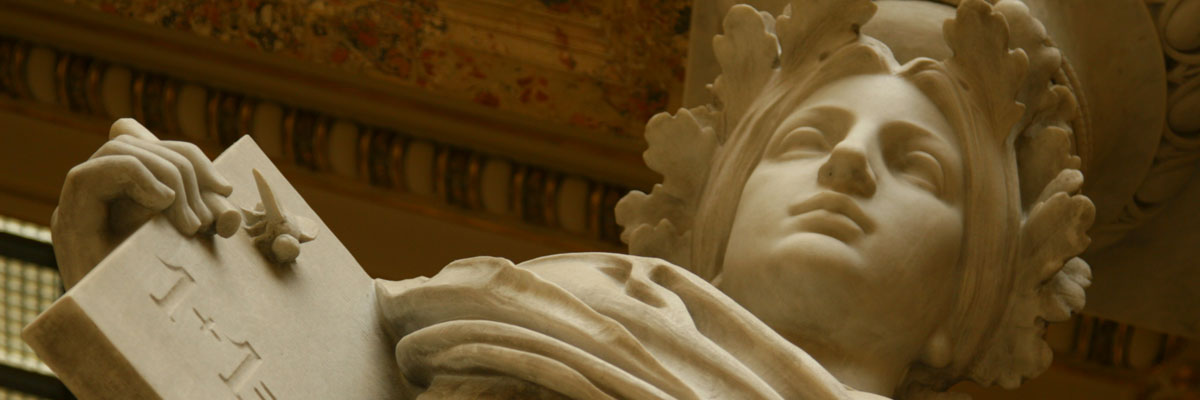On Friday, 13 May, President of the Czech Academy of Sciences Prof. Jiří Drahoš awarded two significant world scientists prestigious medals of the CAS. The highest prize, the medalDe scientia at humanitate optime meritis, was awarded to Prof. Dr. Rolf-Dieter Heuer, director-general of the European Organization for Nuclear Research (CERN) in 2009–2015, an important scientist in the field of experimental particle physics. An Ernst Mach Honorary Medal for Merit in the physical sciences was awarded to Prof. Dr. Jörg Neugebauer, director of the Max-Planck-Institut für Eisenforschung in Dusseldorf.
Prof. Dr. Rolf-Dieter Heuer has long tried to bring science closer to the general public and to show its significance for all of mankind. He served in the post of director-general of the European Organization for Nuclear Research (CERN) from 2009 and as only the second in the sixty-year history of the institution his five-year period in office was extended by two years. Under his leadership, CERN became perhaps the most famous scientific institution in the world, but also a symbol of scientific cooperation between the nations and countries of all the continents in a spirit of complete openness and trust. He emphasizes that CERN was the originator of many of today’s top technologies, which today often serve humanity even in completely different areas. Scientific research is, according to him, more than just an expansion of the collection of human knowledge - it is also the basis of contented human existence.
Prof. Heuer contributed to the deepening of the partnership with the EU and the enlargement of the cooperation with many countries outside Europe. Under his leadership, Israel (2014) and Romania (2015) became member countries, while Serbia, Turkey and Pakistan became associated countries. During his scientific career, he also collaborated with a number of Czech physicists including the employees of the Institute of Physics. During his period in office, prof. Heuer visited the Czech Republic three times (in May 2012 to celebrate the 20th anniversary of Czech membership in CERN, in September 2014 to celebrate the 60th anniversary of CERN and in March 2015 at a meeting in Prague within the RECFA). Before he became Director-General of CERN in January 2009, Prof. Heuer was a research director for the particle and astroparticle physics laboratory of DESY in Hamburg. He holds many honorary doctorates and has won prestigious international awards. Since April 2016, he has served as the president of the DFG (Deutsche Physikalische Gesellschaft), since his mandate as the Director-General of CERN finished at the end of 2015. The Italian scientist Fabiola Gianotti replaced him in this capacity from 1 January 2016.
Prof. Dr. Jörg Neugebauer is one of the most important world personalities dedicated to utilizing the latest knowledge of physics and chemistry in material and engineering sciences. He laid the foundation for an entirely new group of theoretical techniques for multilevel modelling of materials, which allow the prediction of not only the characteristics but also the behaviour of materials purely theoretically using modern computer technology. New substances are hence not necessary to prepare metallurgically and subsequently investigate experimentally, which substantially reduces the financial and time demands of the industrial development of new technologically important materials.
An example of the success of Prof. Neugebauer in connecting basic research with applications in the industrial sphere is the research and development of a new class of steels joining in themselves two often incompatible characteristics – high strength and ductility. An extremely innovative element of these promising steels are specific phase transformations, which appropriately reinforce these alloys right in the most stressed areas where conventional materials fail.
To his credit, permanent collaboration emerged between the workplaces of material physics in the CR and in Germany. Since 2005, several Czech scientific employees have worked in the department of Prof. Neugebauer and in 2013 this collaboration was officially anchored in a Memorandum on Collaboration between the Institute of Physics of Materials of the CAS in Brno and the Max-Planck-Institut für Eisenforschung in Dusseldorf.
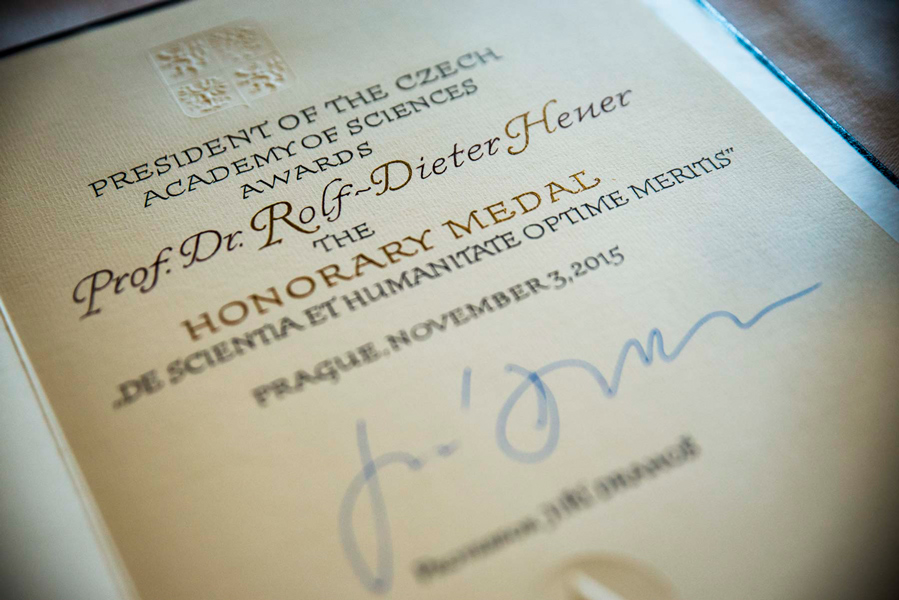
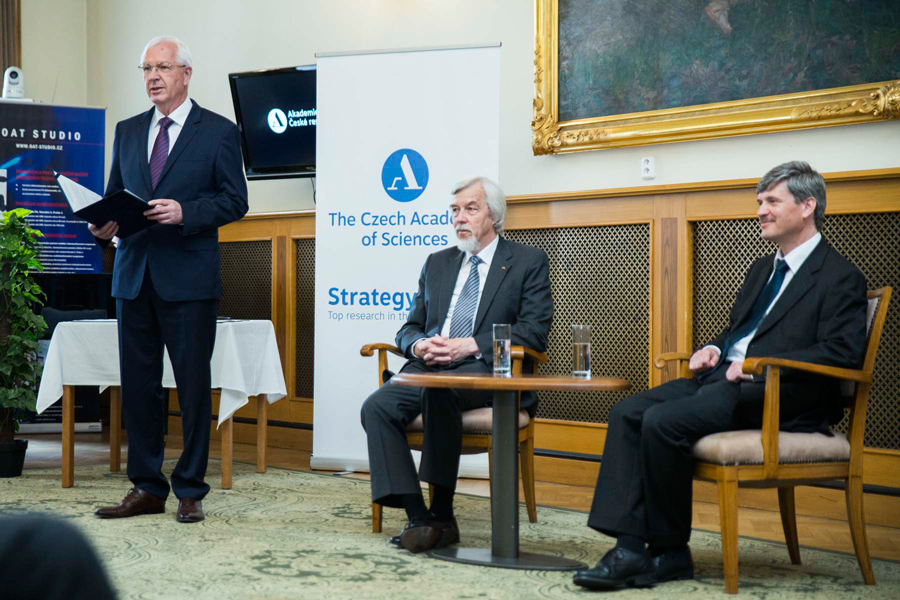
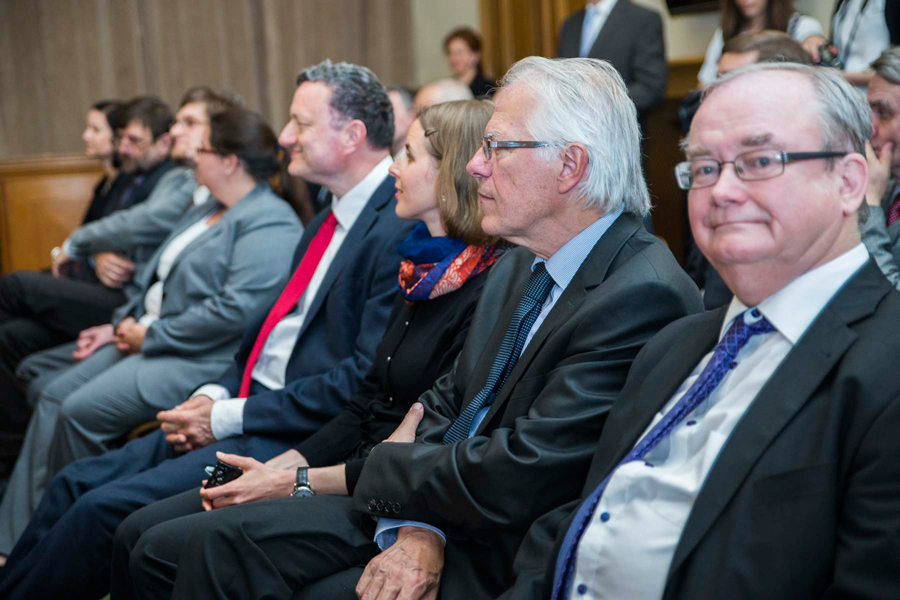
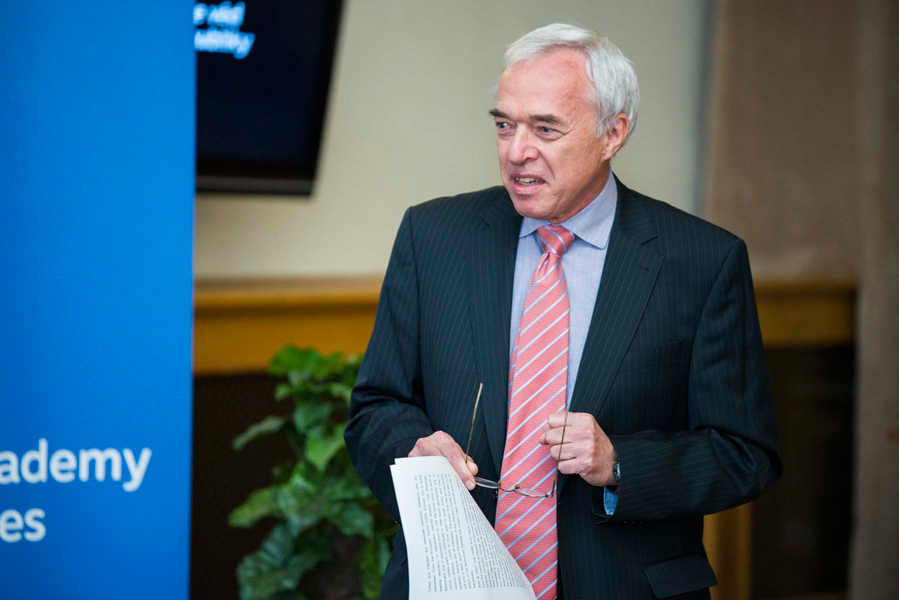

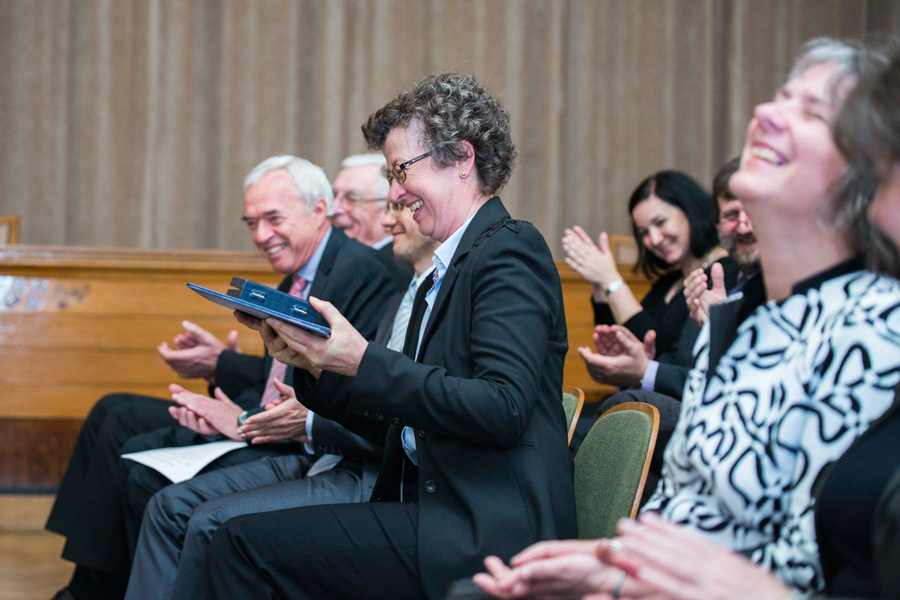
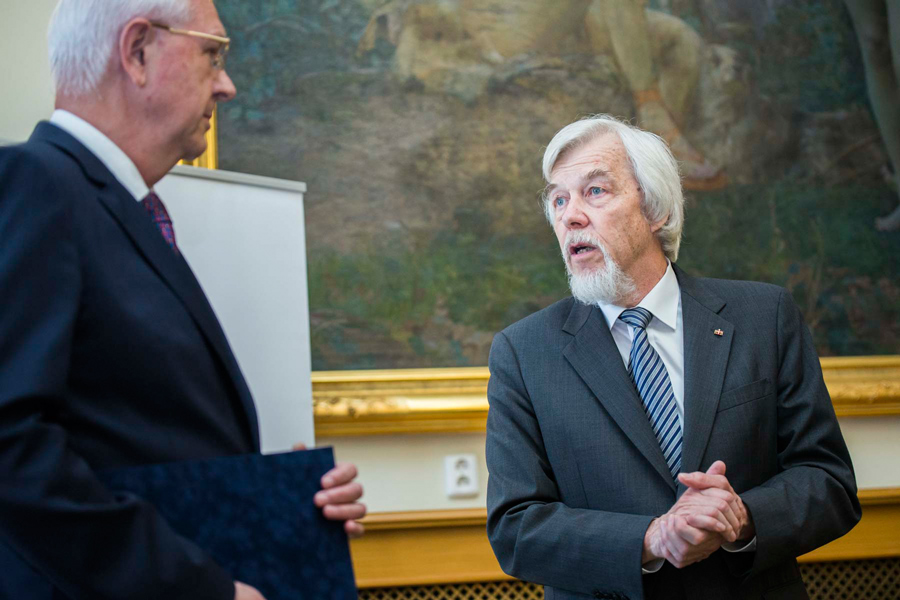
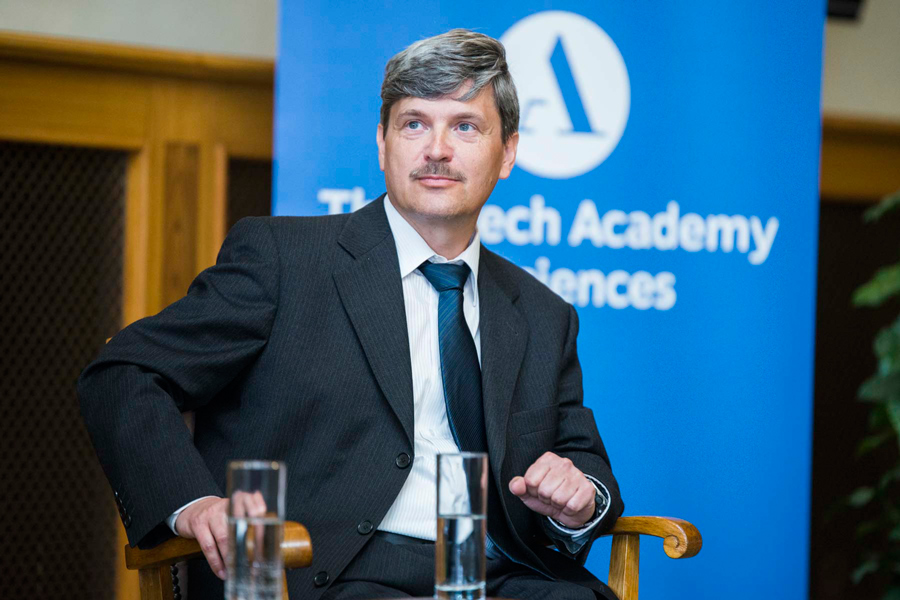
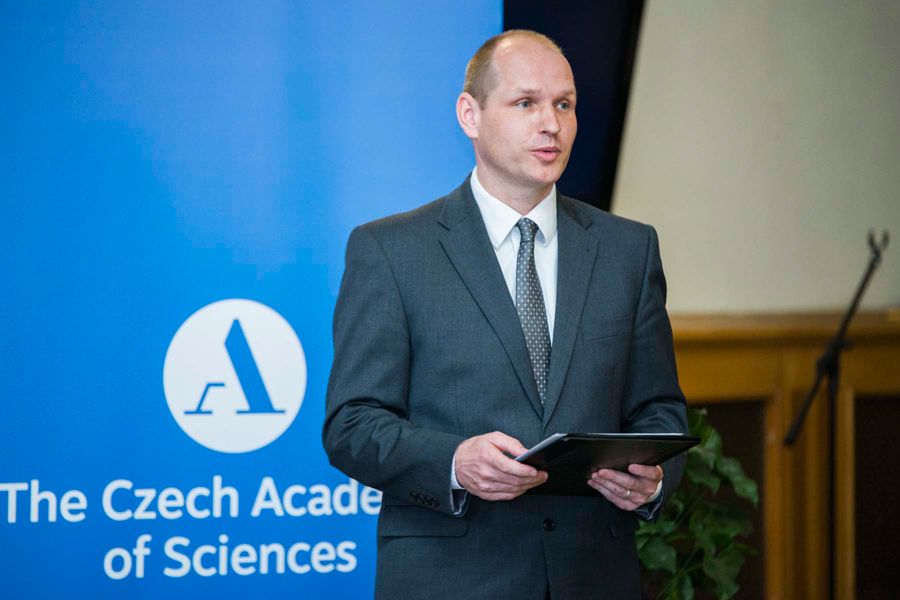
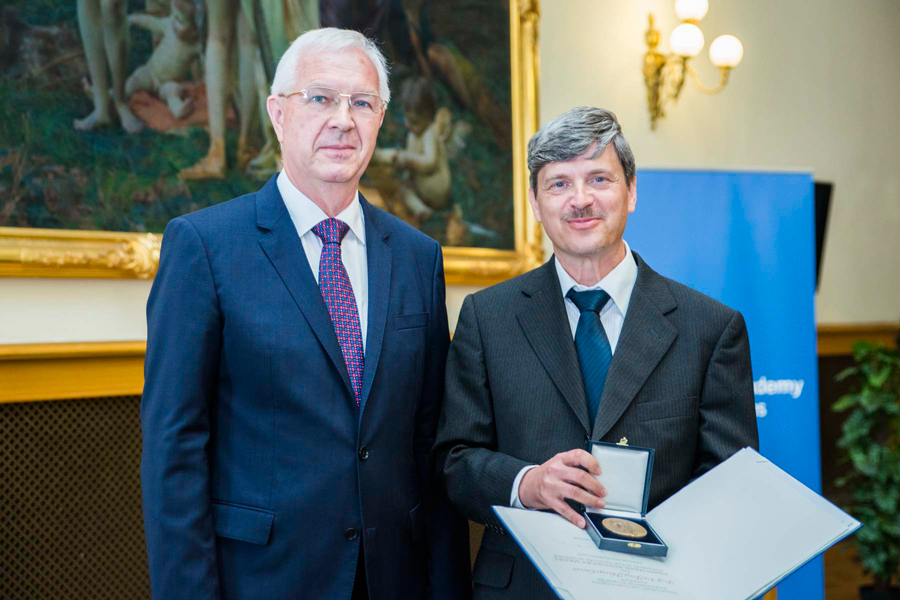
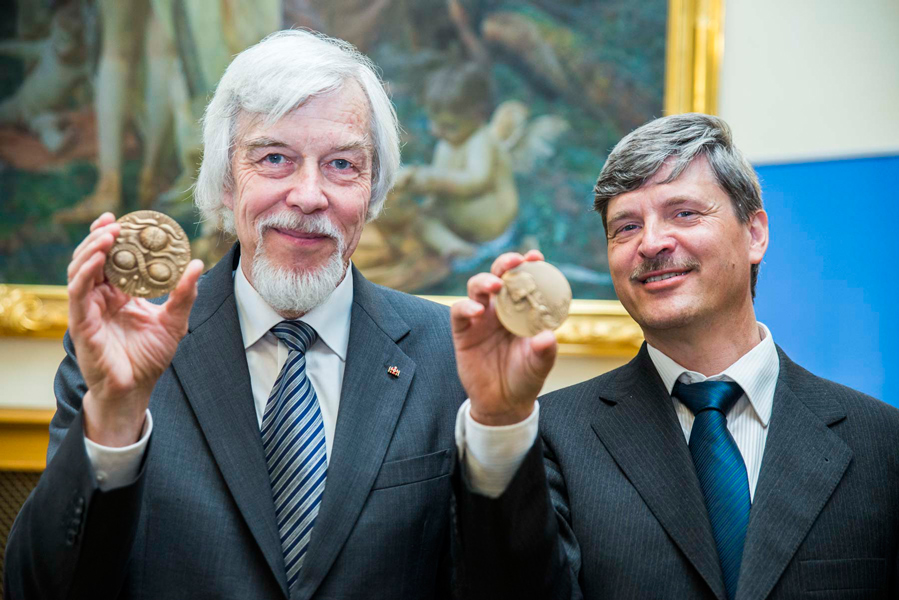
Photo: Viktor Černoch (Department of Media Communication of the Head Office of the CAS)
Prepared by: Department of Media Communication of the Head Office of the CAS
